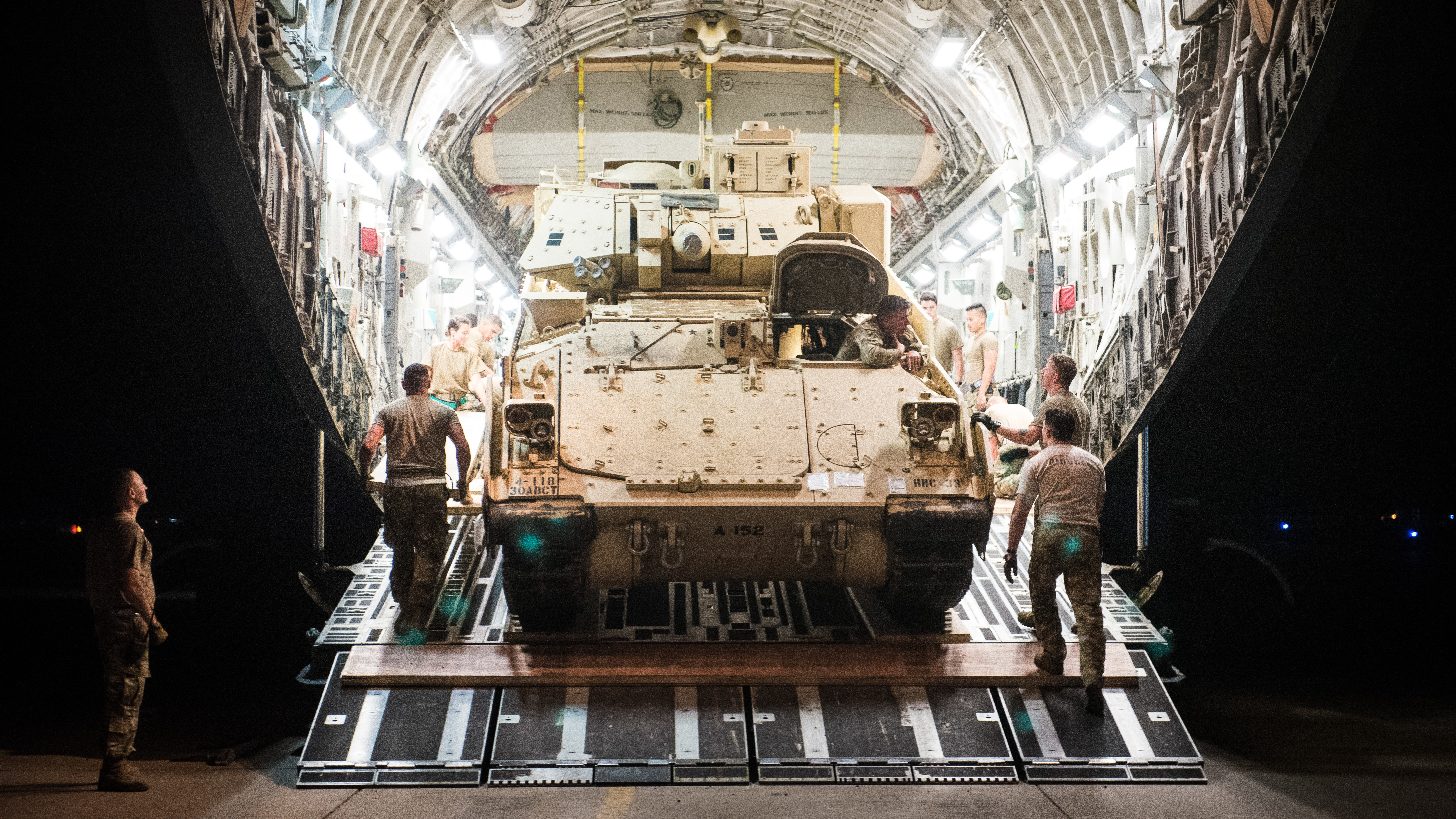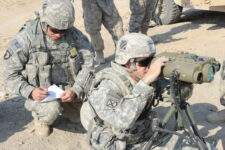
An M2 Bradley backs onto a C-17 transport.
WASHINGTON: President Joe Biden nominated Douglas Bush to serve as the Army’s top acquisition official, the White House announced Tuesday.
Bush currently serves as the acting assistant secretary of the Army for acquisition, logistics and technology and would serve in that role permanently, if confirmed. His job entails overseeing all of the Army’s acquisition plans and advising the Army secretary on the service’s buying policies.
Before joining the Pentagon, Bush worked in Congress for more than 18 years, according to the White House announcement. Most recently, he served as deputy staff director of the House Armed Services Committee. Before that Bush was an Army officer, serving in the 24th Infantry Division and 3rd Infantry Division.
Bill Greenwalt, nonresident senior fellow at the American Enterprise Institute, told Breaking Defense that Bush’s nomination was “logical.”
“Doug is a logical pick with a wealth of experience in acquisition and technology issues,” said Greenwalt, former deputy undersecretary of defense for industrial policy under President George W. Bush. “He has strong relationships with the Hill which will be needed if the Army is to be successful in its modernization efforts.”
In his work for HASC from 2007 to 2018, Bush oversaw programs under the purview of the tactical air and land forces subcommittee, including focus areas of Army and Marine Corps aviation, ground combat and network systems. He also spent several years focused on acquisition policies.
Bush is in line for the formal acquisitions job as the Army undergoes a sprawling modernization effort and the service builds toward multi-domain operations. While the Army is under budgetary pressure, the service requested $11.2 billion in its fiscal 2022 budget request, more than $1.7 billion over the previous year’s enacted budget.
The Army modernization portfolio spans from tactical networks to long-range precision fires to hypersonics. Given his previous work, Bush is intimately familiar with the acquisition challenges that Army faces.
“In the past the Army did struggle at times with developing requirements that were actually achievable and realistic to achieve within the funding and modernization timeline that were given. As a result, acquisition programs sometimes struggled,” Bush said in June at Aberdeen Proving Ground. “Another observation is that the Army, at times, has been inconsistent with its priorities, changing too often sometimes … just when real progress has started.”
He added that the time that there was “cause for optimism” that the Army would change its ways.
In an appearance at the Defense News conference in early September, Secretary of the Army Christine Wormuth hinted at “hard decisions” to service’s 34 modernization programs it plans out its fiscal 2023 budget.
“This is clearly going to be a case where cost, performance, schedule, those are all things that we’re going to look at as we think about hard choices,” she said. “We’re going to think about, you know, what are we seeing with our prototypes — which ones are playing out. What are we seeing in terms of thinking about how, you know, are these programs affordable at scale.”
Today Biden also nominated Carrie Ricci to be the Army’s general counsel. Ricci currently serves as the associate general counsel at the Department of Agriculture. She retired as a lieutenant colonel in 2010 and previously served as assistant general counsel for the Army.
She also sat Fort Hood Independent Review Committee, formed last year by then-Army Secretary Ryan McCarthy to review the command climate at Fort Hood after the disappearance and murder of Spc. Vanessa Guillén.
Army eyes TBI monitoring, wearable tech for soldiers in high-risk billets
“We are also looking at what additional personal protective equipment we can provide to our folks, especially instructors and others who are routinely exposed to blast pressure,” said Army Secretary Christine Wormuth.


























